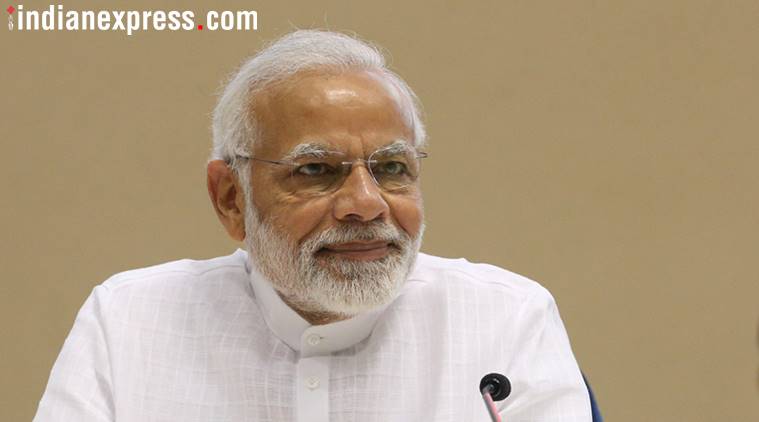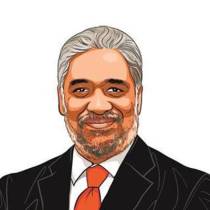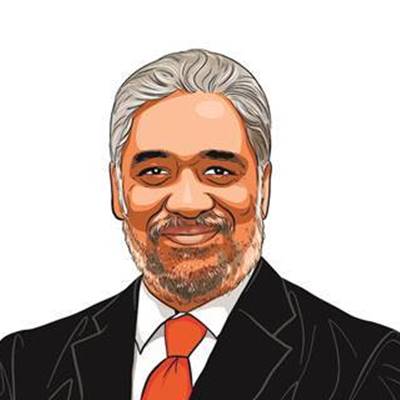Raja Mandala: Reconnecting with Europe
Modi government’s notable foreign policy achievement has been its outreach to the continent.

Prime Minister Narendra Modi.
President Ram Nath Kovind’s visit to three European states — Cyprus, Bulgaria and the Czech Republic— last week may not have drawn big headlines in the Indian media. But his trip is part of a notable effort by the Narendra Modi government to put Europe back at the centre of India’s global consciousness.
India’s diplomatic mind space is occupied mostly by Pakistan, China, and the United States. Thanks to the institutionalised high-level interaction with Asia, India’s relations with the ASEAN have become a part of the foreign policy discourse. Thanks again to annual summits, Japan has become an important element of India’s international relations.
But Europe as a collective has drawn little attention. The problem is not just with the government, but also the so-called strategic community. Analysts presenting periodic reviews of India’s foreign policy rarely mention Europe. When all is said and done about Modi’s diplomatic record, his outreach to Europe is likely to emerge as a major contribution to India’s foreign policy.
This outreach has had a number of strands. One was to show the flag. India’s accumulated neglect of Europe meant there were many countries that few Indian leaders or senior officials had not visited for decades. The smaller countries of Europe, in particular, got the short shrift. The Modi government has made amends by launching an expansive engagement with European countries at the political level.
Kovind had earlier travelled to Greece and outlined a comprehensive new Indian approach to Europe. His predecessor, Pranab Mukherjee and Vice President Hamid Ansari had undertaken important trips to the region after the NDA government came to office. Ministers and senior officials too have stepped up travel to and engagement with Europe.
The last four years have also seen a major diplomatic push to clear the underbrush that was preventing a rapid advance in the engagement with Europe. Unresolved issues with key countries in Europe had injected much negativity to India’s relations with key European countries. The case of the detained Italian marines — that festered under the UPA government — was sorted out by the NDA government with long overdue purposefulness. This led to Rome’s support for India’s membership of the export control groups and its lifting the political hold on the India-EU annual summit in 2016.
In what could turn out to be a potential game-changer, Modi has laid the foundation for a strong strategic partnership with France. If the UPA government was unable to translate its selection of the Rafale fighter aircraft into formal acquisition, the NDA government has moved forward, notwithstanding the political problems associated these days with any major arms purchase. Even more important, the ambit of the relationship with France now includes maritime and naval collaboration.
Beyond the bilateral, the NDA government sought to intensify engagement with the European Union. Although the two sides had unveiled a strategic partnership way back in 2004, the movement was too slow. If India seemed unwilling to think strategically about Europe, Brussels too took a bureaucratic view of India. That is changing now.
The EU is currently mapping out an “India Strategy” that is expected to lay out an ambitious new agenda for the relationship. India, on its part, is attaching a new strategic salience to the relationship with Europe. As Kovind put it in a speech in Athens earlier this year, “Europe is irreplaceable in India’s determination to achieve the goals it has set itself.” As the world’s second-largest economic entity and a major source of capital, Europe is a natural partner in India’s economic transformation. But India has a lot of catching up to do with Europe — from trade liberalisation to educational exchanges and climate change to security cooperation.
The Modi government’s boldest move, however, lies in a conscious effort to break out of the anti-colonial and Cold War attitudes that crimped India’s engagement with Europe. The PM’s enthusiastic outreach to Britain and participation in the Commonwealth summit, much against the grain of conventional thinking in the foreign policy community, opened up new opportunities with London. So is the unfolding Indian Ocean partnership with France.
Independent India began well by looking at Europe in quite a differentiated way. Prime Minister Jawaharlal Nehru chose to retain the Commonwealth connection against the dominant trend in the nationalist movement. The attractions of aid saw Nehru limit India’s post-War engagement with a divided Germany to the West. As its foreign policy became more doctrinaire in the later years of the Cold War, Delhi became less and less sophisticated.
As it deepens engagement with Europe today, India is learning to appreciate the multiple forces — religious, ethnic, economic and political — that are reshaping the continent. As it reaches out to Central Europe, India has begun to acknowledge the region’s complex relations with its large neighbours — Germany and Russia. In deepening ties with the Nordic and Baltic states, Delhi recognises their deep-seated fears about an assertive Moscow. India’s long-standing friendship with Russia gives Delhi a solid understanding of Moscow’s concerns on Western expansion into its “near abroad”. This is not a picture that fits in with India’s Cold War perceptions of Europe.
On top of all this is a new factor — the Trump Administration’s pressure on Europe to take more responsibility for its own security and the maintenance of the regional order. As Europe steps out from America’s protective shell, it will need partners in promoting stability in Eurasia and the Indo-Pacific. That opens up one of the most productive and exciting lines of strategic advance for India in the coming years.
The writer is director, Institute of South Asian Studies, National University of Singapore and a contributing editor on international affairs for ‘The Indian Express’
For all the latest Opinion News, download Indian Express App
More From C. Raja Mohan
- Where interests meetTrump’s recalibration of US’s international relations and India’s ambition to play a larger global role fit together..
- Raja Mandala: Imran’s Pompeo testPakistan’s new PM has stumbled on foreign policy in a bid to play to the domestic gallery. His challenge will be showcased during US Secretary…
- Raja Mandala: Privatising the Afghan warUS is debating use of private militias in Afghanistan. Can it prevail over Pakistani army’s hybrid war using the Taliban? ..








































No hay comentarios:
Publicar un comentario